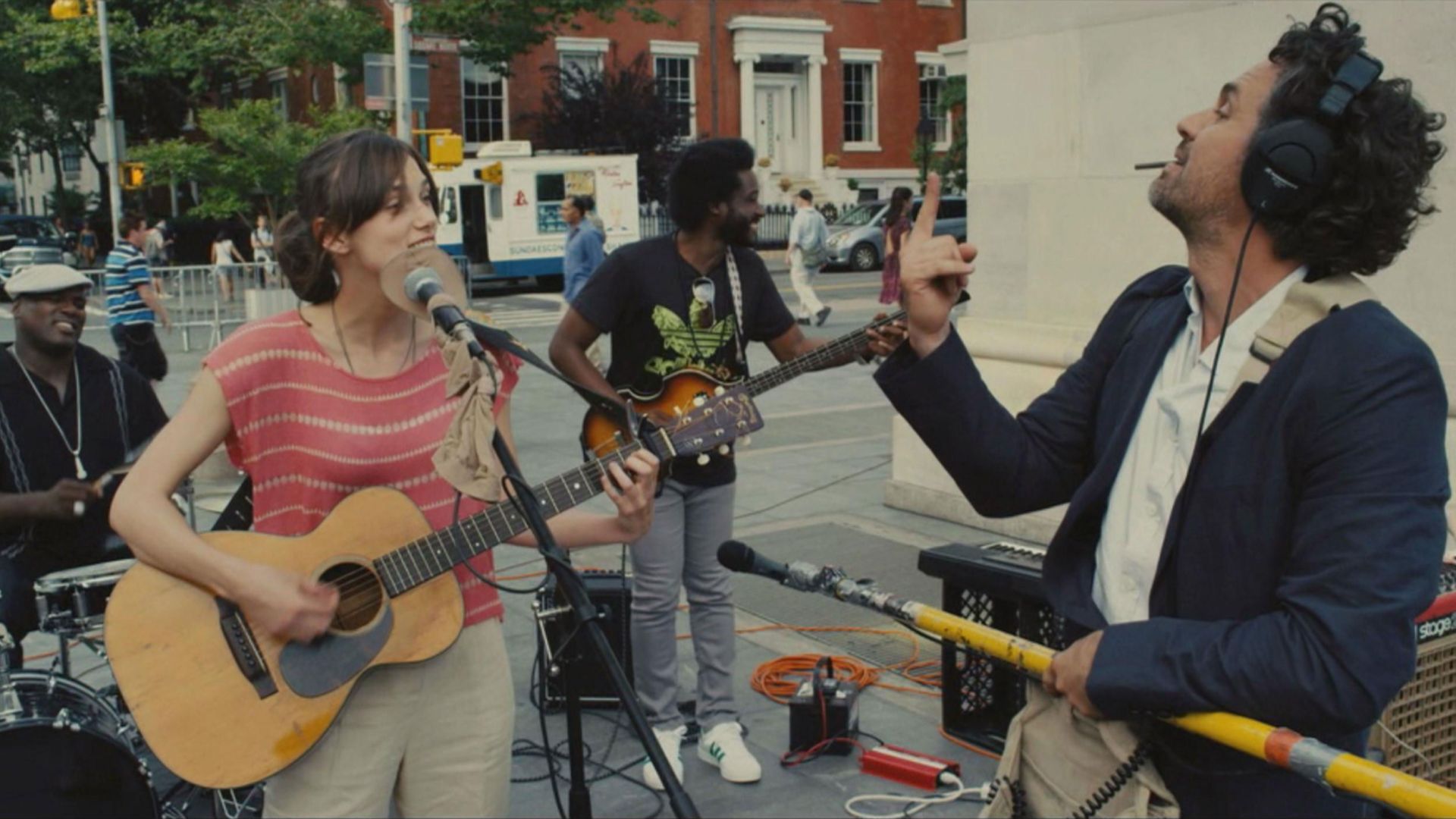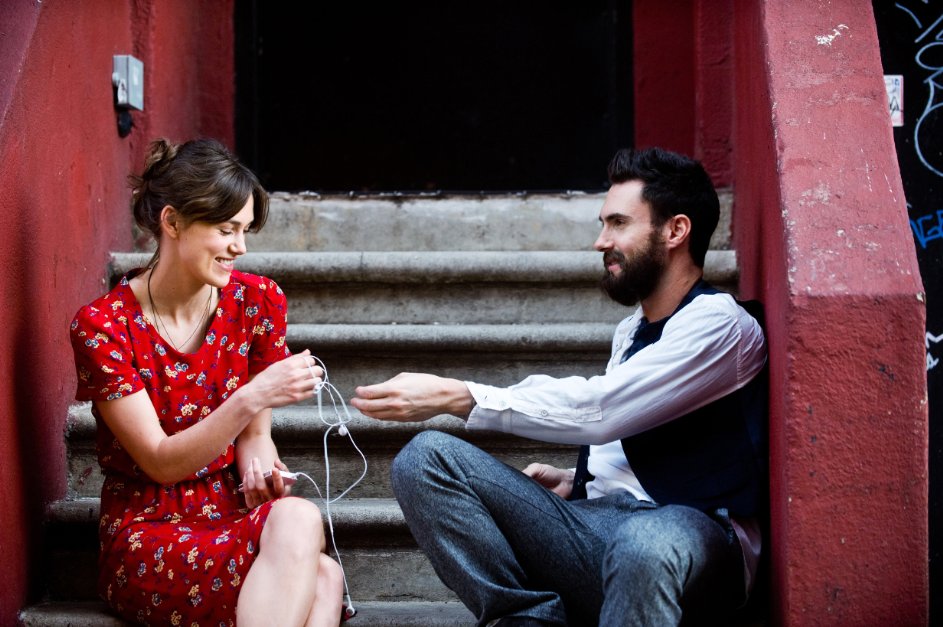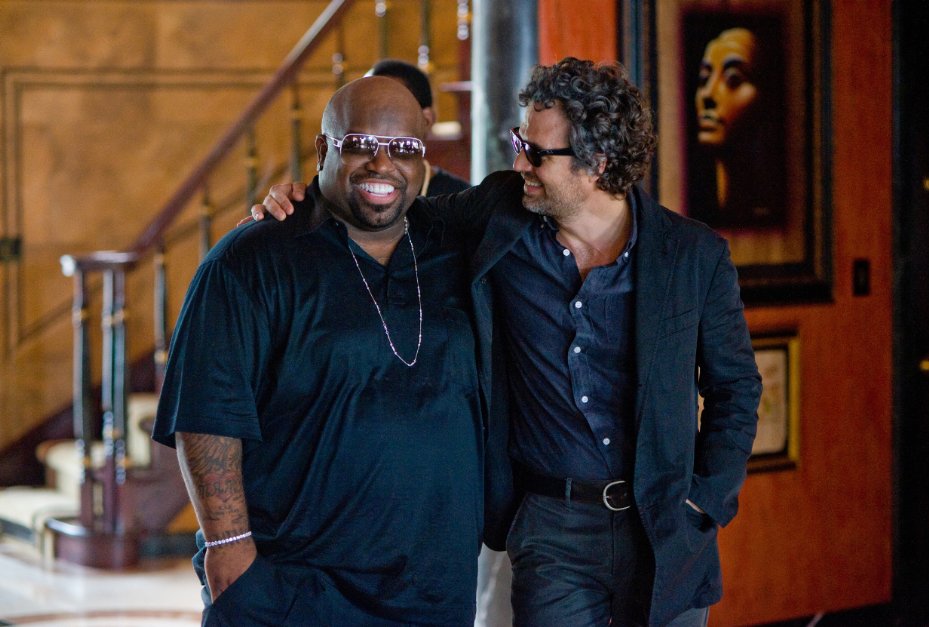In his book Culture Making, Andy Crouch (executive editor of this magazine) writes that "to be Christian is to stake our lives on this belief: the only cultural goods that ultimately matter are the ones that love creates."
 Andrew Schwartz / Weinstein Co.
Andrew Schwartz / Weinstein Co.I don't know what John Carney's personal religious beliefs are, but I'm pretty sure that the director agrees—and he makes movies that testify to this belief. Carney, onetime bassist for the Irish rock band The Frames, has directed music videos, TV, and films, but he's best known on this side of the pond for Once, the 2006 breakout hit that introduced us to the Swell Season and garnered an Independent Spirit Award, an Oscar, and an Emmy.
Once was a fairy tale set in a real world, the story of a washed-up Dublin street musician (Glen Hansard, who formed The Frames) who meets a Czech immigrant (Marketa Irglova). They wind up making a demo together and saving each other's lives, in small ways.
Besides being a great movie, Once is also a love story that's not a romance—a special interest for me—and that's where Begin Again comes in. When it played at the Toronto International Film Festival earlier this year, it was titled Can a Song Save Your Life, and in his festival coverage for us Ken Morefield expressed his keen enjoyment of the film.
Now that I've seen it, I have to agree. Begin Again is not Once; it's an American film about New York City made by a Dubliner, and it trades in its fairy-tale feeling for more of a romantic comedy vibe. Its folk-rock is replaced with singer/songwriter-pop. But it's still the kind of movie musical in which the music is the point of the story—which by my lights is absolutely the best kind—and not only is it fun and enjoyable and uplifting, it's also about how the best things we make come from the love we have for one another.
Greta (Keira Knightley, who apparently can sing too) and Dave (Maroon 5 frontman Adam Levine) are twentysomethings, college sweethearts who love to write songs together. They move to New York City when some of Dave's work hits it big and he lands a record deal. You can guess what happens next: Dave's success goes to his head, and Greta finds herself alone, crashing on her friend's couch and making plans to head home to England, broken. But her friend makes her tag along to his gig at Arlene's Grocery (a bar and music venue on the Lower East Side, favorite of musical up-and-comers) and fairly drags her onstage to perform one of her own songs, where fortyish A&R music label owner Dan (Mark Ruffalo) spots her.
 Andrew Schwartz / Weinstein Co.
Andrew Schwartz / Weinstein Co.Dan was big on the music scene in the 90s, but he has been having a particularly bad year. And he's had a particularly bad day, after a particularly bad hangover and a particularly bad firing from his own label in front of his teenage daughter. He's also separated from his wife. And broke. It's not a good time for Dan.
But Greta's music sparks his excitement, and Dan chases her down and talks her into recording a demo—all over New York City, he says. The city itself will be their backdrop. They'll get musicians who don't have a lot else going on to play, and they'll just see what happens. Greta agrees, reluctantly at first. But she doesn't have much going on. What's to lose?
Begin Again is like Once in that it has, at its center, a pair of people who meet by accident and realize what their work needs is each other. Carney is working with a bigger budget here, and the film is populated with many more characters and relationships—shaky families and broken marriages and old friendships. Those people are played by some wonderful actors: Knightley is terrific and understated and, like Irglova's character in Once, a refreshingly honest, talented, plainspoken woman who also doesn't sacrifice vulnerability for toughness. She and Ruffalo have a fine working chemistry, and the minor characters are a who's who of musical and thespian talent: besides Levine, there's the rapper and producer CeeLo, Yasiin Bey (aka Mos Def), Catherine Keener, and Hailee Steinfeld, who played the girl in the Coens' True Grit.
The film is interested in all these relationships, and it's interested in how they get restored—not necessarily "fixed," but restored. What's great about this movie is that without being "subversive," it repeatedly subverts your expectations. It hits all the same notes as a great romantic comedy, but it's far better than that. What you anticipate may not happen, but what happens is better than what you anticipated.
In a cinematic landscape that is perhaps overly obsessed with being "subversive"—by which we usually mean that it challenges your expectations of cultural norms—Begin Again is unpredictable, but you don't leave feeling bad, or sad, or dirty. You won't be building castles in the sky to make you unsatisfied with your own real life.
 Andrew Schwartz / Weinstein Co.
Andrew Schwartz / Weinstein Co.That's because the movie focuses on how what we do—what we're passionate about in our work—is improved, and even completely transformed, by the people with whom we do it. When we let others in and create from a place of love and even (dare I say?) joy, our work becomes something more much interesting and lovely than it could have been when we were on our own. This is underlined throughout the film, as when the rapper played by CeeLo clearly shows his gratitude for everything Dan did for him in the past.
It's our relationships that matter, not our celebrity. Life is made up of who we love.
Begin Again is the best sort of summer movie, with great performances and a solid core. It's clearly a work that comes from love shared by people who enjoyed making it, and that makes it fun for us to watch out in the audience, too.
And it might just inspire you to go home and start singing.
Caveat Spectator
As with Once, the film's rating is almost entirely earned for reasons of language, largely f-bombs, though this film (being set in the United States) has nowhere near the quantity of its Dublin cousin. Still, they are used in both exclamatory and euphemistic ways. Unmarried characters are said to have lived and slept together. One character drinks to excess, drives briefly under the influence, and has some pretty severe-looking hangovers. A teenager dresses in provocative ways (in ways you might see at any local high school), though she learns that she shouldn't. In one scene, we see some women clad in bikinis in the background of a shot. But it's important to note that this is, at its core, a film with a generally strong moral core; people who do wrong things tend to learn to do the right thing by the end. If you are okay with hearing some profanity, then it's a good film for parents and teens.
Alissa Wilkinson is Christianity Today's chief film critic and an assistant professor of English and humanities at The King's College in New York City. She tweets at @alissamarie.












